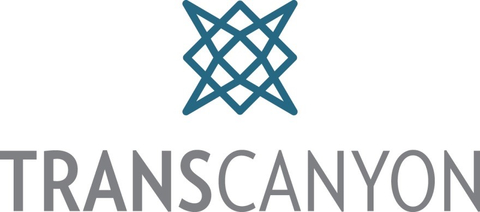TransCanyon, LLC Selected by U.S. Department of Energy under Transmission Facilitation Program to Increase Transmission Capabilities in the West
TransCanyon, LLC Selected by U.S. Department of Energy under Transmission Facilitation Program to Increase Transmission Capabilities in the West
PHOENIX & DES MOINES, Iowa--(BUSINESS WIRE)--The U.S. Department of Energy’s Grid Deployment Office today announced the selection of TransCanyon, LLC to enter into capacity contract negotiations for the Cross-Tie 500-kilovolt transmission line (Cross-Tie) as part of the Transmission Facilitation Program.
In 2014, BHE U.S. Transmission and a subsidiary of Pinnacle West Capital Corp. formed TransCanyon as a joint venture between the two companies to identify, develop, construct, own and operate electric transmission projects located in the 11 western states comprising the Western Electricity Coordinating Council footprint.
“Cross-Tie is a proposed 214-mile transmission line that will connect Utah and Nevada to increase transmission capacity, improve grid reliability and resilience, relieve congestion on other key transmission lines, and expand access to renewable energy across the region,” said Ed Rihn, president and CEO, BHE U.S. Transmission. “The bidirectional nature of Cross-Tie will increase transfer capabilities in the West, unlocking increased access to renewable energy resources in the region.”
Cross-Tie will:
- Enable the delivery of 1,500 megawatts of renewable generation throughout the region, including solar generation in Utah, Nevada and California, and wind generation in Wyoming and Utah;
- Provide access to new markets for existing renewable energy in the region, including new markets for surplus California solar power;
- Reduce greenhouse gas emissions by 19.5 million tons of carbon dioxide between 2028 and 2050, or about 850,000 tons per year, by lowering curtailments of existing renewable generation and enabling the development of new solar and wind resources; and
- Increase regional reliability and improve resilience during extreme weather events.
“This project is consistent with Pinnacle West’s strategy to grow our operations through carefully selected opportunities close to our core business,” said Robert E. Smith, Executive Vice President, General Counsel and Chief Development Officer for Pinnacle West. "The proposed transmission line will deliver economic benefits and enhance reliability for all electricity customers in the region, while also promoting the growth, exchange and more efficient use of renewable energy resources.”
The Cross-Tie line will run from the Clover Substation in Mona, Utah, to the Robinson Summit Substation near Ely, Nevada, increasing the strength of the transmission system and leading to increased reliability of the grid and better overall electric service to regional retail electricity customers. TransCanyon would build, own, operate, and maintain the Cross-Tie Transmission Line.
The project is expected to generate more than 2,400 direct full-time equivalent jobs, with an additional 1,700 jobs in related and supporting industries such as finance, insurance, transportation and hospitality. In addition to job creation, the line is expected to generate a combined $9.1 million per year for the region through project development income taxes. Overall, the project is expected to infuse a combined $761 million in total economic activity for the Utah and Nevada economies.
“To realize the full benefit of the nation’s goal of 100% clean electricity by 2035, we need to more than double our grid capacity and President Biden’s Investing in America agenda puts us in position to do just that,” said U.S. Secretary of Energy Jennifer M. Granholm. “This historic effort to strengthen the nation’s transmission will drive down costs for American families and deliver thousands of good paying jobs for American workers—helping communities keep the lights on in the face of climate change-induced extreme weather events.”
About TransCanyon
TransCanyon is an independent developer of electric transmission infrastructure for the western United States. Formed in 2014, the company is a joint venture between a subsidiary of Pinnacle West Capital Corporation (NYSE: PNW) and Berkshire Hathaway Energy’s subsidiary, BHE U.S. Transmission.
TransCanyon is uniquely situated in that it brings together the broad and deep capabilities of its parent companies – Pinnacle West Capital and Berkshire Hathaway Energy. As a result, TransCanyon benefits from the collective experiences of organizations who together own and operate approximately 41,888 miles of existing transmission infrastructure. In addition to the Cross-Tie Transmission Line, TransCanyon is pursuing other transmission opportunities in the western U.S.
About BHE U.S. Transmission
BHE U.S. Transmission is committed to the long-term ownership and acquisition of transmission assets. BHE U.S. Transmission builds upon the significant operational and ownership experience gained by Berkshire Hathaway Energy (through its businesses’ ownership of existing electric transmission systems). BHE U.S. Transmission’s delivery platforms have developed approximately $1.6 billion of transmission projects at voltages of 345 kilovolts and higher and has extensive experience in traditional utility and stand-alone transmission project development. For more information about BHE U.S. Transmission, visit the company’s website at bhetransmission.com.
About Pinnacle West
Pinnacle West Capital Corp., an energy holding company based in Phoenix, has consolidated assets of approximately $24 billion, about 6,300 megawatts of generating capacity and nearly 5,900 employees in Arizona and New Mexico. Through its principal subsidiary, Arizona Public Service, the company provides retail electricity service to approximately 1.4 million Arizona homes and businesses. For more information about Pinnacle West, visit the company’s website at pinnaclewest.com.
About TFP
Funded through the Bipartisan Infrastructure Law, the Transmission Facilitation Program, or TFP, is a $2.5 billion revolving fund program that will help build and expand interregional transmission lines across the country. Administered by the U.S. Department of Energy’s Grid Deployment Office, TFP provides transmission developers with financial assistance to help develop large-scale new transmission lines, upgrade existing transmission lines, and connect microgrids in Hawaii, Alaska, and U.S. territories. For additional information, visit the U.S. Department of Energy’s Transmission Facilitation Program website.
Contacts
Media Contacts:
Alan Bunnell (Pinnacle West), (602) 250-3376
Berkshire Hathaway Energy Media Hotline, (515) 242-3022
Analyst Contact:
Amanda Ho (Pinnacle West), (602) 250-3334
Websites: transcanyon.com/projects/Cross-Tie-Transmission-Line
